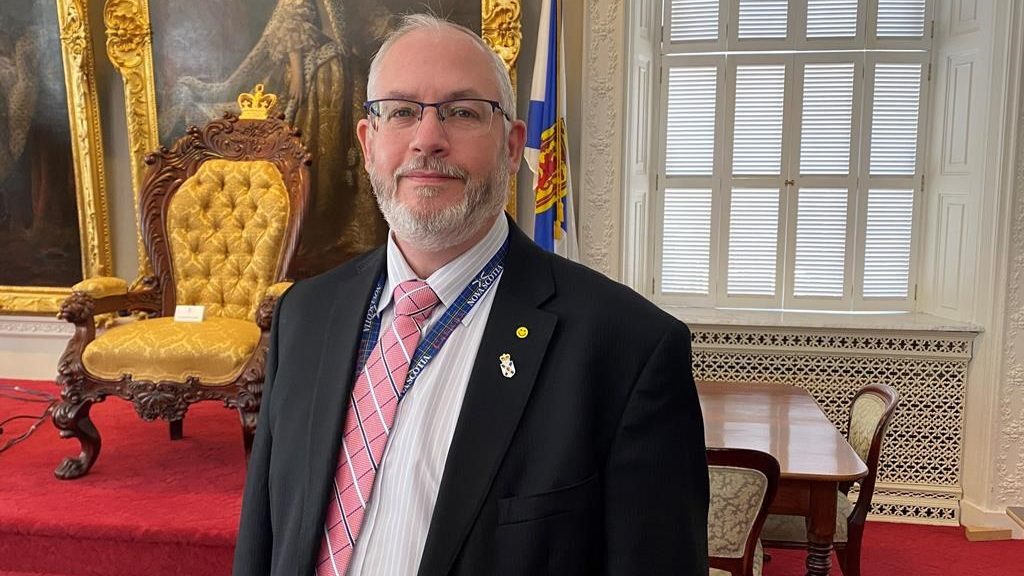‘Accomplished, full of life, defeated’: Truro MMA fighter Cody Glode’s family speaks out two years after his suicide
Posted Mar 2, 2018 11:30:00 AM.
This article is more than 5 years old.
It’s dark and the heat is intense. An elder pours water over hot, volcanic rocks which represent the 'grandfathers'. Like a sauna, thick steam rises and spreads, making it so beads of sweat pour seamlessly out of their skin. The searing sound coming from the stones is overpowered by song and prayer. Dozens have filed into a small hut in the Millbrook First Nation for this sacred ceremony. They have gathered to commemorate the memory and life of a fallen son.
Cody Glode had everything going for him.
At 19, he became the youngest full-time firefighter with the Truro Fire Service and the only Mi’kmaq person with the fire department.
On top of that, he was a rising star in the local mixed martial arts scene with dreams of making it to the pinnacle of his sport.
“All that guy wanted to do was get to the UFC,” said Caitlin Glode, Cody's younger sister. “He would work all day and go to the gym for hours at night. There were even times he had said, 'I wish I didn't become a firefighter so fast because all I want to do is fight.'”
His parents, Matthew and Lisa Glode, echoed similar sentiments, adding Cody had a healthy obsession with martial arts.
“He got that passion,” said Matthew. “That's all he wanted to do and he would go to the gym and he would roll. I could remember taking him down and going back to pick him up and basically having to say, 'Come on, I have to go to bed tonight.'”
Growing up, Cody's parents described him as a rambunctious child with a great sense of humour, which would carry on into his teenage and young adult years.
“He could go into a room and he could be there for a few minutes and have everybody laughing and smiling because that's who he was, he was life,” said Matthew.
His mother recalled his friends would often playfully tease him for being a “momma's boy.”
“He'd still call me 'mommy',” said Lisa. “That was just the way he was.”
At first glance, it seemed like Cody had everything to live for.
“He had a new car that he paid cash for, he had a career with the fire department, he was ready to go pro in MMA,” said Matthew. “He was moving forward in life and from the outside looking in, he had everything.”
But despite all of his merits and accomplishments, it wasn't enough to help Cody defeat his toughest opponent.
On March 2, 2016, Cody lost a years-long battle with depression when he died by suicide at the age of 20.
The following piece aired on NEWS 95.7:
‘He was a defeated man’
News of his death came as a great shock to many who knew him.
On the outside, most people saw Cody as a very upbeat, energetic and happy person. But according to Caitlin, that was far from true.
“People can't wrap their heads around high functioning depression because to everyone, he was fine,” she said.
She went on to say Cody wanted to keep his mental illness hidden because he was afraid of what people would think.
“He was embarrassed about it,” said Caitlin. “He loved his job and he didn't want anybody to know that he was suffering. He felt like people were going to judge him.”
His parents said Cody's battle with depression started around the age of 13.
“The move from P.E.I. to the Truro area wasn't an easy one,” said Lisa. “The bullying started then and it progressed throughout junior high for Cody. He had a hard time and you could see the change in him.”
According to his sister, Cody had made plans at a very young age to take his own life.
“We found out shortly after he passed away that he had a plan to go and hang himself in the woods at the age of 12 or 13,” said Caitlin.
During that time, Cody was put on medication but still displayed symptoms of depression.
It wasn't until he discovered mixed martial arts at 15 when the symptoms disappeared.
“I know for a fact that Cody would have been dead at 15 instead of 20 if it wasn't for martial arts,” Caitlin said. “We didn't really see signs of it anymore until the end.”
Eventually, Cody's symptoms returned prompting the Truro native to seek help from the mental health help line. When he didn't get immediate assistance, he tried the emergency room at a hospital where he was told to follow up with his family doctor who then recommended he see a psychologist.
“He was trying to get help but they gave him the two month wait and his whole light of hope was just gone,” Caitlin said. “He came home and was like, 'Two months? I can't do two months.'”
His father recalls Cody returning home from the doctor's office with his shoulders slumped over and head facing the floor.
“I've seen him lose in competition, but I've never seen him defeated,” he said. “At the end, he was a defeated man.”
'I could feel him leave me'
Three weeks after Cody was wait-listed, Matthew said he was getting ready to head to Halifax for work when Cody came up to him with a video camera.
“I was in a hurry and I was like, 'Cody, I got to go! Get out of my way!,'” said Matthew. “So we get into the kitchen, he put the camera down and he said, 'I want to show you one thing that I learned'. So I said okay, and normally he would walk me through it but this time he kicked my legs from under me. I said, 'Man, you're going to kill me!' and he said, 'Oh come on old man!' and he helped me up, gave me a hug and a kiss and said, 'I love you' and he walked out the door. That was last time I seen him alive.”
Later that day, Caitlin said she received a call from one of his friends, saying Cody was in crisis. She then drove over to check on him.
“He was sitting in the corner of his kitchen laughing and crying and he was like, 'Caitlin I'm a horrible person,'” she said. “I was like, 'Cody, that's not you, it's your head and that can be fixed, you just have to hold on' and he was like, 'No, I can't.'”
Not long after, Lisa phoned Cody to check on him in what turned out to be the last time they ever spoke.
“I didn't even know it was him,” said Lisa while holding back tears. “I knew right then that was the last time I was going to hear his voice. I said, 'I love you' and he said, 'I know you do, mom' and I said, 'I'll be over in the morning' and he said, 'Yeah'. I knew then, I could feel him leave me.”
Cody died by suicide later that night.
Matthew was working in Halifax when he received news of his son's passing.
“From that point until I got home here, I hardly even remember the drive,” said Matthew. “Lisa was visibly torn, but in the back of my mind I was thinking, 'Is this some horrible dream?' but then I saw our son Chris and I knew he was gone.”
'We won't always get it right'
After Cody died, his parents spoke openly about their son's struggles and criticized the province's mental health care system for not giving Cody the immediate assistance he needed, adding that they felt the system was in crisis.
When asked if they still felt that way, Matthew said: “I believe it is and I'll tell you why, I recently spoke to an individual the other day that just went in to get help because they're in a bad spot and they have a three month waiting period before they can get in, so it's even longer. I think that health care for mental health is in a crisis, not only here, but across the country.”
Dr. Linda Courey, director of mental health and addiction with the Nova Scotia Health Authority, agrees that wait times are still an issue that needs to be addressed.
“The system has its flaws and it needs to be changed,” said Courey, who is set to retire this April. “We need to ensure equitable access, so really it shouldn't matter where you live in Nova Scotia as to how you're going to be received when you ask for help or what services you get.”
Courey adds her department is tasked on a daily basis with determining whether or not to provide people in crisis with immediate assistance. But she acknowledges sometimes mistakes are made.
“We won't always get it right but we are responsible to establish a system where we are doing the very best we can to make that determination and to help people who are in immediate need,” she said.
According to Courey, both the province and NSHA are working to make what she's calling “profound changes” to mental health care, including establishing a stepped care approach.
“It's a way of matching the services you offer to meet the needs of the patient,” she said. “That will be new. That has not existed in Nova Scotia before.”
'Nothing has changed'
Dr. Courey touted some big changes have already taken place, while others will be phased in over the next three to five years.
But mental health advocate Laurel Walker isn't buying it.
“I don't believe a word that comes out of Dr. Courey's mouth,” said Walker. “This has been going on for years and years and I don't believe any profound changes are coming.”
According to Dr. Courey, implementing a centralized intake system is one of the NSHA's top priorities. But Walker believes by doing so, the health authority would be heading in the wrong direction.
“A central intake is standardizing the services across the province and standardization is the enemy of client centered system care,” said Walker. “Wait times should have been her number one priority. The wait times in Cape Breton right now are almost a year.”
Walker said that in order to make real changes and reduce client wait times, the system needs a total overhaul.
“The system is broken,” she said. “It's not client centered so it's not designed around the people needing the services.”
When asked if she has seen any significant attempts to make changes since Cody's death, Walker said she hasn't seen anything of note and believes the NSHA needs to be held accountable, as a result.
“Not an awful lot has changed in the two years since Cody died,” she said. “I think that we failed him and I think that we failed people before him.”
But despite all of the province's shortfalls, Walker believes there is a light at the end of the tunnel.
“I know that the answer is out there and I think changes can happen,” she said. “I think more people need to speak up and say to the NSHA, 'This is not okay.'”
'Just because I look okay, I may not be okay’
With two years having passed since Cody's death, his family still mourns his loss, describing the second year as being far more difficult than the first year.
But despite this, his mother said she if given the option to bring her son back to life, she wouldn't.
“Somebody asked me one time, 'Don't you wish you could just bring him back?' and I said, 'No',” said Lisa. “To do that would be so selfish because he was in so much pain.”
His sister said her brother's passing has left a void in her life that she feels will never be filled, but takes comfort in knowing he's no longer in pain.
“He fought for so long, like literally fought tooth and nail to stay a little bit longer and he couldn't and that's okay because he's not suffering anymore,” said Caitlin.
Matthew himself, admitted to not fully understanding the weight of Cody's mental illness when he was alive. But he said his son's death has changed his views, as he believes it's important to speak openly about mental health and to continue to fight the stigma around it.
“I think we to make sure that people understand that just because I look okay, I may not be okay, and that's okay,” said Matthew.
“If one person hears this and one person doesn't do it, then at least his life wasn't taken in vain because he was such a good person and he was amazing.”










